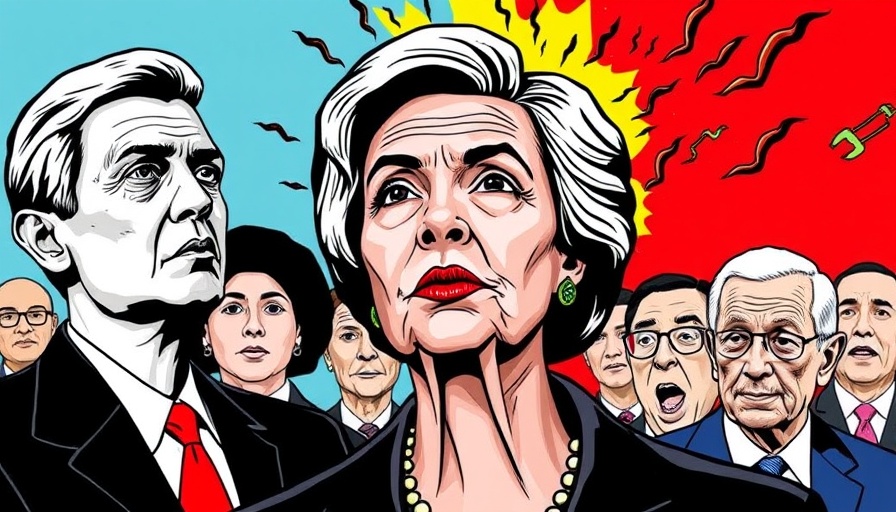
The Consequences of Groupthink in Politics
Groupthink often leads to disastrous choices, and the recent commentary concerning the Democratic Party exemplifies this phenomenon. According to John Halpin of the Liberal Patriot, the Democratic leadership has ignored warnings about diminishing support from working-class voters and its faltering economic and cultural agenda. This pattern is indicative of a wider problem: when dissenting voices are stifled, important truths are overlooked. This suppression can erode the party’s traditional base, leaving them alienated and disillusioned.
Sparks of Trouble: The Narrative of Israel Aid
In a striking example of political behavior, the Left’s reaction to humanitarian aid initiatives for Gaza showcases how bias can obscure humane intentions. Brendan O’Neill of Spiked highlights that despite Israel’s efforts to launch the Gaza Humanitarian Foundation, criticism arises not from valid concerns but from an irrational stance against Israel, termed “Israelophobia.” This situation delineates the complexities of political biases that can lead to misguidance, effectively preventing any potential goodwill from reaching those in dire need.
The Rise of Religious Sentiment Among Youth
The cultural landscape of America is experiencing a notable shift, particularly among Generation Z. John Hirschauer at City Journal reports an upward trend in religious identification, with a particular focus on Christianity. Amidst a culture that often rebuffs traditional values, this resurgence can be perceived as a fundamental rebirth of commitment. Young people are increasingly turning toward faith as a form of rebellion. Such developments invite reflection on the shifting ideological landscape and reveal a vital demographic trend that political parties might overlook at their peril.
Women’s Rights and Space: The Transgender Debate
As the Women’s Liberation Front's concerns reach a crescendo, the dismissive attitudes of lawmakers question the inclusivity of feminist discourse. Kara Dansky's commentary underlines a critical struggle for women’s spaces in environments increasingly hostile to traditional definitions of gender. The pushback against female-only spaces by significant political figures reflects a growing tension within feminist movements themselves, between embracing diverse identities and the need to secure specific rights for women. This multifaceted issue merits deeper discussion and could reshape tactics in advocacy for women's rights moving forward.
Anticipating Future Political Engagement Trends
Looking ahead, the combination of these narratives presents a critical opportunity for political parties, particularly the Democrats, to reevaluate their strategies. Neglecting the sentiments of working-class voters, overlooking the complexities in foreign policy narratives, and failing to honor traditional social values among youth could lead to unprecedented losses in upcoming elections. These insights highlight the importance of adaptive engagement, where listening becomes as crucial as articulating positions in policy arenas.
Political parties across the spectrum must develop frameworks that acknowledge these varying perspectives while striving to foster genuine dialogues. As we identify and address the groupthink that limits progress and inclusivity, the potential for renewed partnership with key demographic segments increases. Understanding the diverse facets of issues is essential to formulating effective policies that resonate with modern sentiments.
In conclusion, it's clear that a thoughtful approach toward engagement and understanding differing views, from humanitarian efforts overseas to the dynamics of religion and gender, is critical. This multidimensional approach to the needs and concerns of Americans can forge paths toward a more inclusive political arena.
 Add Element
Add Element  Add Row
Add Row 



 Add Row
Add Row  Add
Add 


Write A Comment